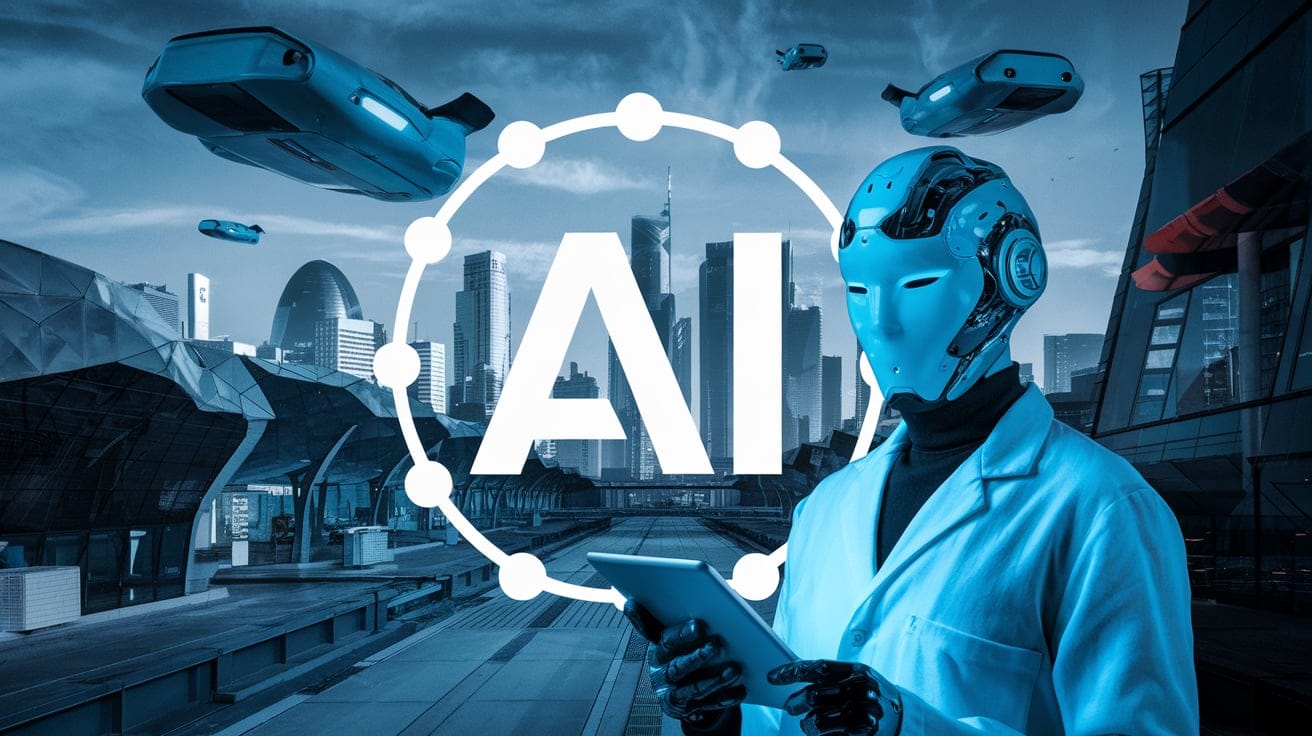

Are you ready to disrupt with AI? Join our Hackathon today! Click to Register
By WebOsmotic Team | Published on February 24, 2025
Summarize Article

Table of Contents
ToggleArtificial Intelligence (AI) is changing industries, disrupting technology, and transforming society. But as AI gets smarter, its ethical ramifications become more sophisticated. Knowing the ethical aspects of AI is needed to ensure responsible and equitable utilization of AI.
In this blog, we explore the ethical considerations for AI, discuss AI ethical guidelines, and highlight the importance of AI ethics in building a fair and sustainable technological future.
| Ethical Concern | Description | Solutions |
|---|---|---|
| Bias and Fairness | AI can inherit biases from training data, leading to discrimination. | Use diverse datasets and conduct fairness audits. |
| Privacy and Data Security | AI systems often require large amounts of data, risking personal information exposure. | Implement strong encryption, anonymization, and data protection laws. |
| Transparency | Users may not understand how AI makes decisions. | Develop explainable AI models and ensure clear communication. |
| Accountability | If AI causes harm, who is responsible? | Define clear policies on liability and ethical AI development. |
| Job Displacement | Automation may replace human jobs, leading to unemployment. | Invest in reskilling programs and AI-human collaboration. |
| Misinformation and Deepfakes | AI-generated content can be used to spread false information. | Regulate AI-generated media and educate users on digital literacy. |
| Security Risks | AI systems can be hacked, causing serious damage. | Implement strict cybersecurity measures and conduct regular security assessments. |
AI ethics is the term used to describe the principles and standards that shape the development and use of AI systems in a responsible manner. The guidelines assist in avoiding harm, promoting fairness, and establishing trust in AI technology. With AI’s impact felt in healthcare, finance, education, and law enforcement, ethical examination is more important than ever before.
One of the most serious ethical concerns with AI is bias. AI systems learn from past data, which could be biased. If left uncorrected, AI can amplify and even expand social inequalities. For instance, biased facial recognition software has caused wrongful arrests and misidentifications, disproportionately impacting minorities.
AI is based on huge volumes of data, leading to fears over privacy violations and abuse of personal information. A lot of AI applications harvest data from users without their consent, which is ethically risky.
Most AI models are ‘black boxes’ that do not explain their decision-making processes easily. This inability to explain easily results in lack of trust and raises ethical issues, particularly for serious applications like medicine and law enforcement.
AI automation is displacing human labor, especially in manufacturing, customer service, and data entry. Although AI enhances efficiency, it also causes unemployment and expands the economic divide.
Applying AI to military uses, such as autonomous weapons, creates serious ethical problems. AI-controlled weapons may be operated without human involvement, producing unpredictable outcomes.
In order to address these challenges, organizations and governments are implementing AI ethical guidelines to control the development of AI. Some accepted principles are:
AI systems must maintain fairness by removing bias and offering equal opportunity to all segments of society.
The organizations that implement AI must take responsibility for its decisions and any eventual outcomes.
AI developers need to make AI decisions accessible and explainable.
AI systems need to keep user information safe and adhere to data protection laws such as GDPR and CCPA.
AI must augment human welfare and not replace human decision-making entirely.
Unethical AI can produce discrimination, privacy invasion, and disappropriation of individual freedoms. Ethical AI guarantees that human rights are respected in all uses.
In order for AI to become entrenched, people must trust its judgments. Ethical AI promotes trust and acceptance among users.
Unethical AI can lead to disastrous outcomes. Adopting ethical standards avoids collateral damage and misuse of AI technology.
AI holds the promise to address global problems, from climate change to advances in healthcare. Ethical AI ensures that innovations are sustainable and to the advantage of everyone.
Governments, institutions, and individuals need to come together to guarantee ethical AI development. Policymakers need to enact robust regulations, developers need to make fairness and transparency paramount, and users need to be aware of their rights in the age of AI.
As AI develops, ethical concerns need to be at the center. By adhering to AI ethical principles and resolving the ethical concerns surrounding AI, we can develop technology that serves humanity while reducing risks.
Do you work on AI development? If yes, how are you incorporating ethics into your work? Let‘s begin a discussion on ethical AI development!
We, at WebOsmotic, place great importance on ethical AI solutions that conform to industry benchmarks and social norms. Our experienced professionals make sure that AI technologies are transparent, fair, and responsible.
Looking for ethical AI solutions? Contact WebOsmotic today!
A: The key ethical issues are bias and discrimination, privacy and security, transparency, job displacement, and AI warfare.
A: AI bias can be reduced with diverse datasets, frequent audits, fairness-oriented algorithms, and diverse AI policies.
A: Explainability fosters trust and accountability through making AI decision-making processes comprehensible to users.
A: Governments set regulations, enforce ethical standards, and guarantee AI technologies meet human rights criteria.
A: Firms can embrace ethical AI models, put fairness and transparency first, and regularly carry out ethical audits.
Unlock exclusive insights and expert knowledge delivered straight to your inbox